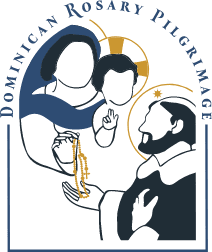Perhaps in Ashes
Dominican Friars

What is dust? For an astronomer, the word might conjure up thoughts of a gigantic cloud in space, whirling and condensing over vast aeons until it bursts into life as a star; for Philip Pullman, the word signifies a rarified material particle that forms the basis for rationality; for John Steinbeck it represents the world of hunger and desolation from which men vainly flee; for the author of Genesis, it betokens God’s generosity, as he made man from dust (2:7), and his justice, as he condemned the serpent to eat of it as punishment (3:14); and for most of us—especially those of us who live in old houses—it means that ubiquitous floating dirt that settles on everything, requiring constant care and cleaning to drive away.
On Ash Wednesday, the Church gathers all these meanings (except perhaps Pullman’s) together in the words that are said as a person’s head is marked with ashes: Remember you are dust, and to dust you shall return. These words are more than a simple memento mori—remember that you die. They are a reminder of the great and terrible entropy of all earthly things: “All go to one place; all are from the dust, and all turn to dust again” (Eccl 3:20). The finest chef spends hours preparing a banquet that is consumed in a few moments and passes on unwanted a few hours later; a wealthy businessman flits from success to success until a market collapse reduces him to ruin; a profligate revels in his conquests until his heart is barren, and even his memories fail to keep him warm; an intellectual spends his life drinking from the wells of the world’s knowledge, only to lay his head at last in the dry dust of the grave. Decay haunts our every achievement, a daily herald of that distant enemy, death: “Things fall apart; the centre cannot hold.” Dust settles; dust remains.
So why this day? Why wear the dust of our downfall like a mark of honor? Why dwell on our dour denouement, when we can distract ourselves with beguiling delights? It is because dust and death are not the final word about our lives. When we wander like the Israelites, almost blinded by the dust of our own sins, weakened by our own wickedness and wounded by others’, a voice still calls out: “Perhaps he will again relent and leave behind him a blessing” (Jl 2:14). Here at last is a sound utterly unlike the dry susurrations of Death’s dusty lips; here is a voice ringing with power and with life, that beckons to us with its pregnant perhaps. Perhaps dust is not our lasting abode. Perhaps death does not undo all things. Perhaps there is a way out; a greater truth; an eternal life. Perhaps we can believe, and hope—and even love.
Today’s ashes are a sign of God’s justice, certainly—we have sinned against the Lord who made us—but they are more than that. They are pre-eminently a sign of God’s mercy, that he does not abandon us to our own sinful ways once we have rejected his grace. God has imbued even dust-bound men with the freedom to return to him, to be forgiven, to love with a new heart. Throughout Lent, we pray, fast, and give alms, not to celebrate ourselves, to look gloomily backward at the half-remembered pleasures of Egypt, or to bribe the infinite God with our finite offerings, but to offer God his own mercy back to him, in loving confidence that he will change our hearts and bring us to him.
We know that dust settles on all things, and all men die. The ashes on our heads today remind us that perhaps there is more. Perhaps now is a very acceptable time. Perhaps now is the day of salvation (2 Cor 6:1–2).
✠
Photo by Fr. Lawrence Lew, O.P. (used with permission)
This article was originally published in the dominicanajournal.org and was written Fr. Gabriel Torretta, O.P.. Fr. Torretta was ordained to the priesthood in May 2015. He studied pre-modern Japanese literature at Columbia University.
